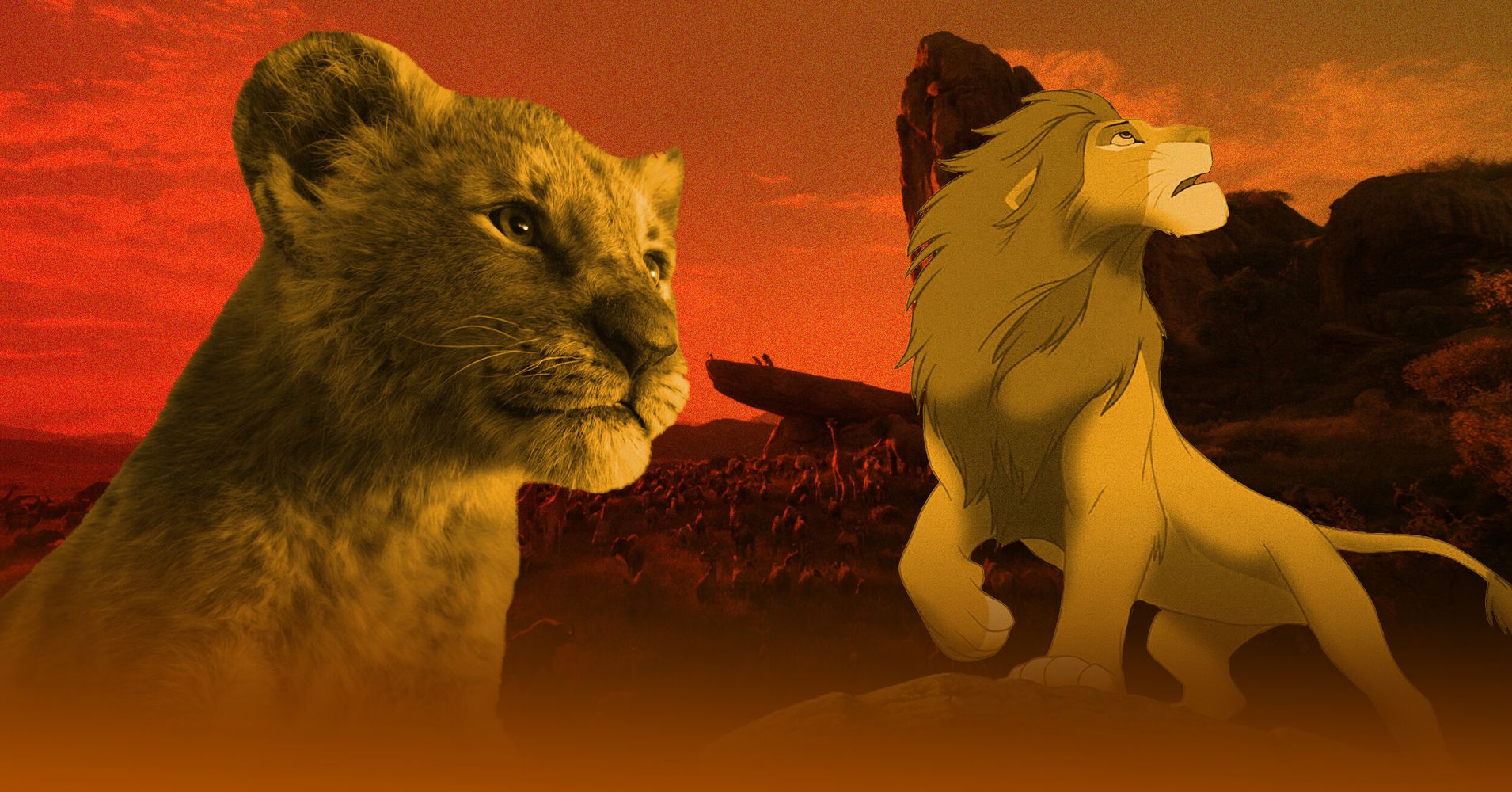[ad_1]
When Disney started developing “The Lion King” in 1988, it soon became clear that faith in the project was limited. Most of the studio’s animators eventually opted to work on “Pocahontas” instead, believing it to be the more promising endeavor. Executives and artists alike were convinced that the Jamestown story, which seemed traditional by comparison — “Pocahontas,” after all, is a princess romance with an established protagonist — would be a guaranteed smash. But the one about the Shakespearean cats? They weren’t so sure.
When production began in 1991, “Pocahontas” was the company’s “A-movie,” and “The Lion King” its “B-movie.” Jeffrey Katzenberg, who ran Disney at the time, said if the movie made $50 million, he’d get down on his knees, because that would constitute a “big success.”
Must be tough to be so wrong.
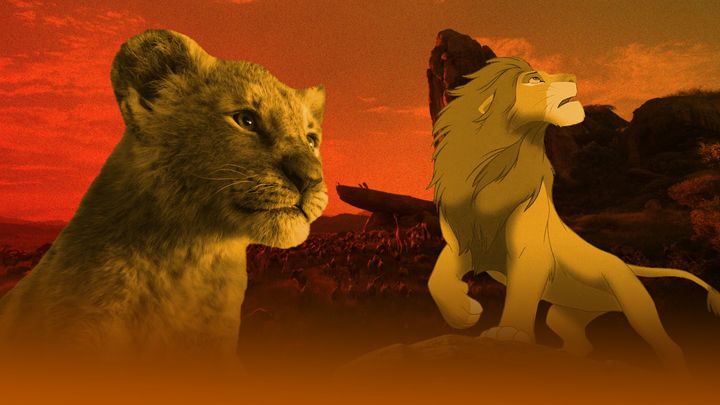
“The Lion King” opened in June 1994, and an instant phenomenon was born. It became the Mouse House’s most prized possession since “Snow White and the Seven Dwarfs” put animation on the map nearly six decades prior. Katzenberg’s hope came true, five times over. The film stuck around theaters well into 1995, earning a massive $311.3 million domestically, more than earlier cash cows “The Little Mermaid,” “Beauty and the Beast” and “Aladdin.” Reviews were rapturous, and over the course of a few years, “The Lion King” amassed an estimated $1 billion in merchandising profits. The stage adaptation, launched in 1997, is the highest-grossing Broadway show of all time. The home-entertainment release is among the most lucrative in history.
As for “Pocahontas,” well, the colors in its wind weren’t so bright. In fact, they were downright bland. The following summer, it grossed less than half of what “The Lion King” did, rattling the prognosticators who’d expected a gold mine. Today, no Disney entity — certainly none without Pixar, Marvel or Lucasfilm affiliations — is as beloved as the one about the cub who just can’t wait to be king. Moreover, the idea that a pricey movie thought to be a shoo-in could underperform is enough to give Hollywood an existential crisis.
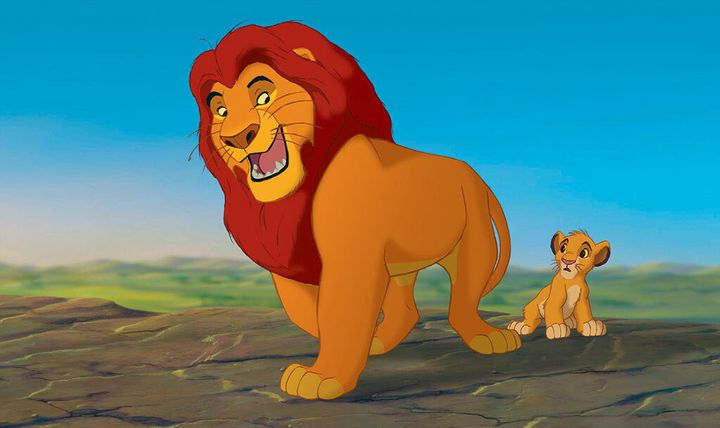
Given the rinse-and-recycle blueprint that has pervaded Tinseltown in the 21st century, the “Lion King” legacy makes it obvious reboot material. This time around, no one will be surprised when Simba and company bring in a kazillion bucks, furthering Disney’s ever-deepening stronghold over the industry. What’s as lucrative as hand-drawn lions repurposing “Hamlet” in the African savanna? Photorealistic lions repurposing “Hamlet” in the African savanna, of course. Across the 2010s especially, the Hollywood ecosystem has trained mainstream audiences to only see movies like “The Lion King” ― formulaic CGI spectacles that cost, in this case, a mind-boggling $260 million (or more) and seem like the closest we can get to monocultural events.
But as audiences indulge their insatiable nostalgia, there’s one thing that won’t be the same: a sense of discovery. Disney was once committed to delicately introducing children to heavy truths about the world, but in the past two decades, those ideas have been increasingly relegated to Pixar. The generation that grew up watching Dumbo’s mother get taken from him, Bambi’s mother die, Simba’s father die and Mulan forge her identity now get to watch … Dumbo’s mother get taken from him, Simba’s father die and Mulan forge her identity. (Disney has yet to green-light a “Bambi” revamp, but the technology used to make “The Lion King” could easily yield that, too.) “Moana,” an original concept that refreshed Disney princess tropes, is the exception rather than the norm.
Even with additional jokes, a fresh Beyoncé song and a palette that resembles “Planet Earth,” the new “Lion King” can’t possibly provoke wonder the way the original did. Disney’s live-action (or live-action-seeming) remake craze, which shows no signs of slowing down, plays things frustratingly safe, refusing to reimagine these stories beyond their greatest hits. Only something new can be that awe-inducing, and watching expressionless lions belt 20-year-old songs doesn’t fit the bill. The most anyone can hope for from this “Lion King” is the ability to say, “Yep, I enjoyed it.”
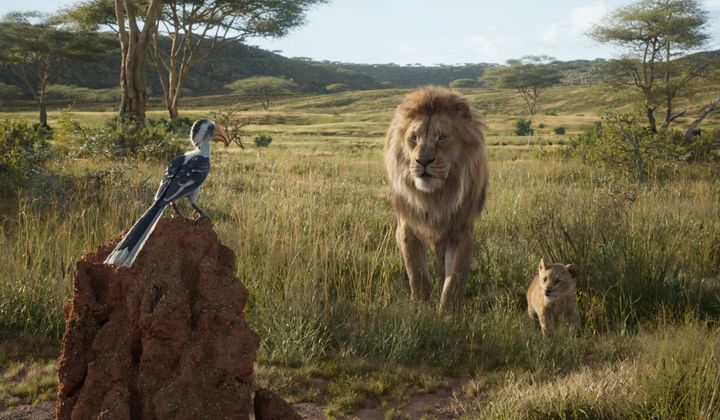
How we got to this moment is a complex case study in Hollywood’s evolution. “The Lion King” stands among a handful of films turned into products to be milked for infinite returns. In other words, movies became brands. If “Star Wars” (1977) jubilantly kick-started the big-business approach to filmmaking, the Reagan ’80s crystallized it. “Raiders of the Lost Ark” (1981), “E.T.” (1982), “Batman” (1989), “Jurassic Park” (1993) and the aforementioned musicals hailing from the so-called Disney Renaissance (1989-1999) created a culture in which action figures, theme-park rides, fast-food promotions, lunchboxes, bedspreads and home-video collectibles were built into blockbusters’ bottom lines. But those movies weren’t merely marketing opportunities; they emphasized ingenuity, introduced us to new sights and advanced the craft of escapist cinema.
The same can’t be said of 2019’s “Lion King,” or many other Disney remakes. Directed by Jon Favreau — the hit-maker responsible for “Elf,” “Iron Man” and the computerized “Jungle Book” redo — this visit to Pride Rock is, in a word, redundant. It’s not technically a shot-for-shot repeat, but it might as well be, given how often it carbon-copies the original’s imagery. Rafiki hoisting a newborn Simba into the air? Check. Simba aging to the sounds of “Hakuna Matata,” full moon glimmering behind him? Check. Timon and Pumbaa’s grub? Check. A spectral Mufasa visiting Simba amid a swirl of purple clouds? Check. The Pride Lands ablaze, giving way to Simba’s triumphant roar atop that famous cliff? Check. (As for “sex” in the sky, you can be the judge of that.)
How quaint, the notion that such iconography was once risky. But it’s true, if we buy into the lore about what a gamble the initial “Lion King” was. Elton John, for example, had never composed a musical. Furthermore, the movie was a philosophical opera that aimed for the grandiosity of “Lawrence of Arabia” and lacked a conventional heroine waiting to find love. After “The Black Cauldron” bombed with audiences in 1985 and “Oliver & Company” with critics in 1988, anything was a gamble. (For more on this, watch the fascinating documentary “Waking Sleeping Beauty,” which chronicles the Disney Renaissance.) Today, it couldn’t be less risky.
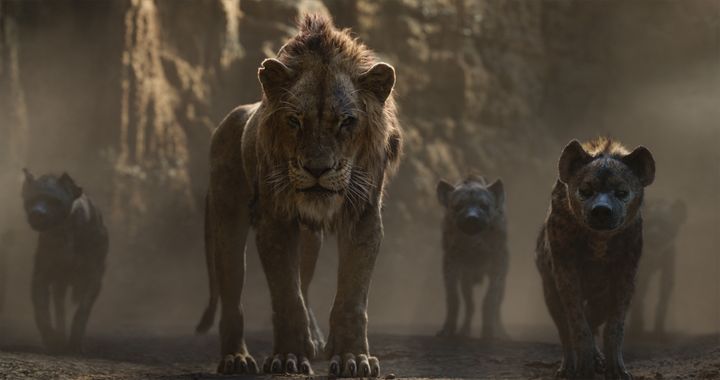
Even during rousing moments (see: everything MVP Billy Eichner does as Timon), it’s hard not to look at this “Lion King” as a creatively bankrupt setback in modern moviemaking. The uncanny-valley version of “been there, done that,” perhaps. Who in their right mind asked for an edition in which the lions look real? Did they not understand that actual lions’ countenances barely change and therefore it is hard to perceive their emotions? Did they think anyone could out-Whoopi Whoopi Goldberg?
And there’s something fishy at play in the way these Disney reboots handle male villains. Beloved for their theatrical grandeur, scoundrels like Jafar (played in May’s “Aladdin” by Marwan Kenzari) and Scar (voiced here by Chiwetel Ejiofor) have been sanded down to macho bores. The studio seems desperate to avoid accusations of gay coding, the long-held belief that certain campy Disney baddies can be read as archetypically queer. Instead of going all in and making Scar gay (imagine!) or else finding a unique angle on him, he’s reduced to just another angry reprobate. Even “Be Prepared,” Scar’s signature rallying cry, is diminished to an aggro chant. The script — credited to Jeff Nathanson (“Catch Me If You Can”) — even adds a line that makes Scar explicitly heterosexual; he once competed with Mufasa for the same lioness, as if we needed that uninspired information in the first place. It all adds up to something toothless, a refusal to let villainy mean anything but the obvious at a time when villains are occupying the White House and beyond.
Surely plenty of viewers flocking to the nearest multiplex will adore this particular “Lion King.” But there’s a cynical bent to the way these Disney remakes — the folksy “Pete’s Dragon” is an exception — assume viewers’ sensibilities haven’t changed over the years, that we just want popular culture to shut up and play the hits. What happens when all the movies have been rebooted? Do we reboot the reboots? Does American entertainment continue its descent into hyper-capitalistic tedium?
If this is what the circle of life looks like as the 2010s comes to a close, maybe it’s time to find a different shape.
REAL LIFE. REAL NEWS. REAL VOICES.
Help us tell more of the stories that matter from voices that too often remain unheard.
[ad_2]
Source link

